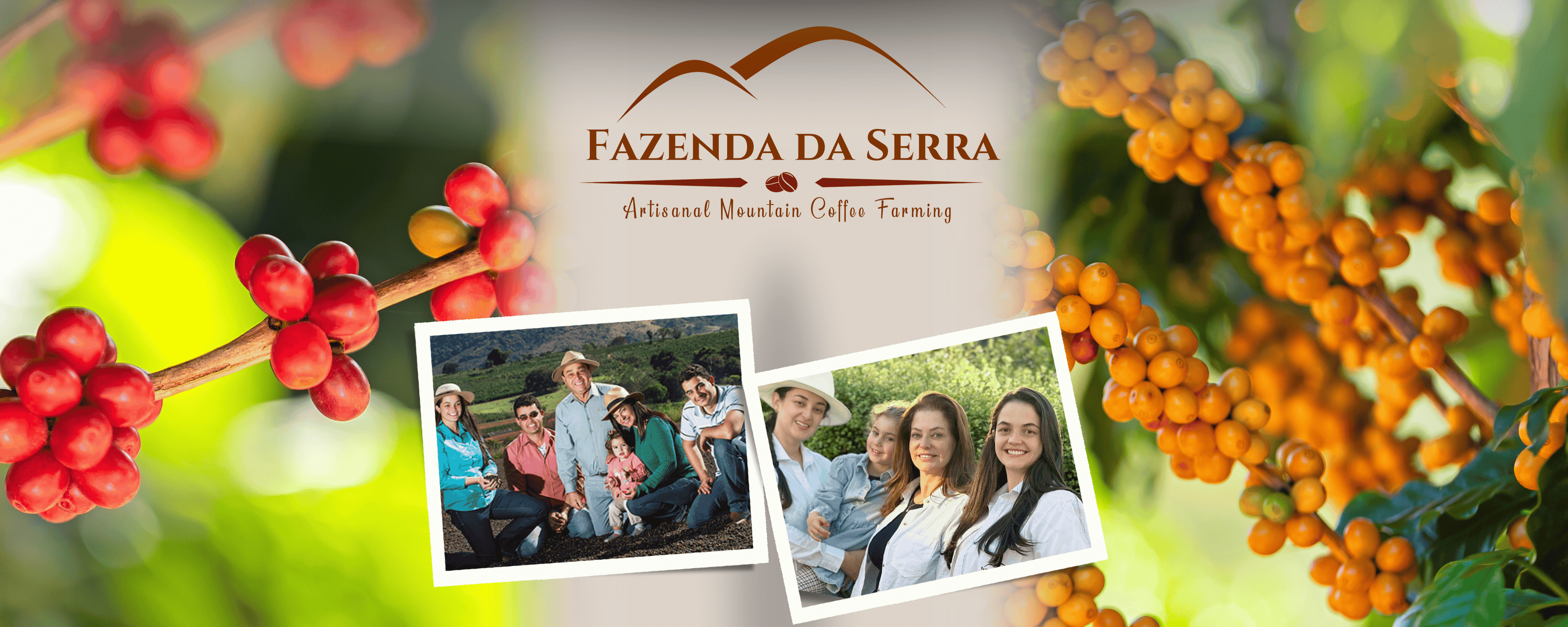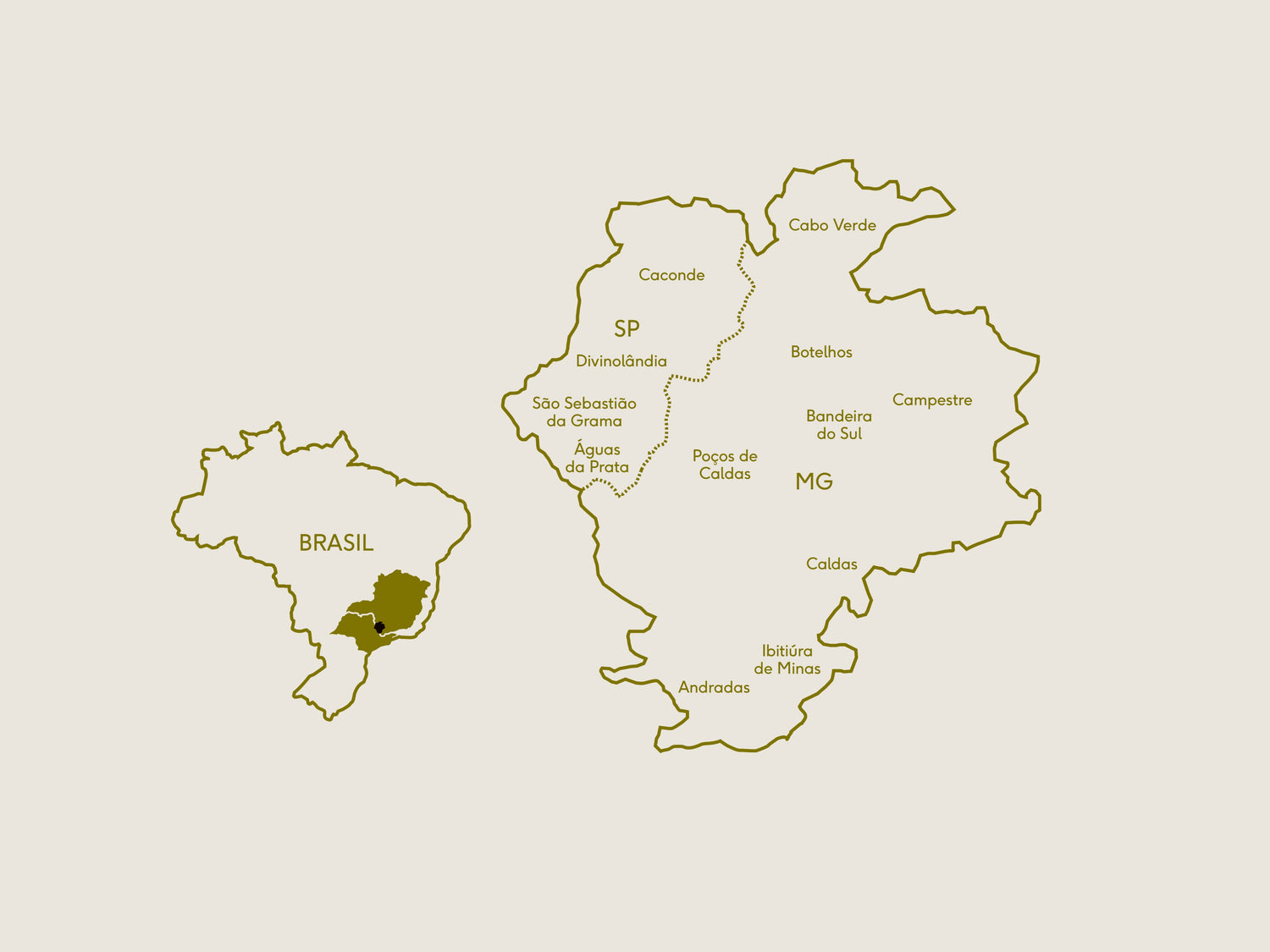
"Guardians of Heritage"
The farm "Fazenda da Serra" began in the mid-19th century with the arrival of a couple of immigrants from Italy.
José Ferrari and his wife Assunta Ferrari arrived in Brazil in the Rio de Janeiro region and then took a train to the state of Minas Gerais, to the city of Poços de Caldas,
José Ferrari and his wife initially worked in cotton cultivation. This continued for over 100 years. Around 1850, one of their sons, João José Ferrari, married Francisca Dias Ferrari and they started coffee cultivation.
Later, around 1930, one of the heirs, Antônio Ferrari Sobrinho, took over the farm. Married to Maria Cecilia Fraga Ferrari, "Toninho," as he was affectionately known, is remembered by everyone for his kind heart and cheerful demeanor. Sadly, Mr. Toninho passed away at a young age, leaving his coffee legacy to his eldest son, Mario Cezar Ferrari.
Today, with the fourth generation of producers and moving towards the fifth, we have been cultivating centenary coffee for generations. Fazenda da Serra, located in the Volcanic Region of Minas Gerais, is renowned for producing exceptional coffees, winning competitions, and offering unique flavors.
"About the Visionary"
Mario was born in the coffee fields, and he is the third generation of coffee growers.
Passionate about coffee tradition, Mario has always been determined to elevate the quality of the coffee produced on his farm. He is a visionary coffee grower. He innovates not only in producing high-quality beans but also in the efficiency and sustainability of the agricultural process as a whole.
Mario goes beyond his inventions and says that what really matters to him is recognition. His intention is to help fellow producers and make coffee farming a world of innovations.
He understands that the farm's success is directly linked to the well-being of the workers. Then, he invests in and creates machines that facilitate his team's work on the farm.

Our volcanic region
In the volcanic region, the predominant vegetation is formed by tropical forests of the Atlantic Forest type. With volcanic soil, the altitudes of the crops vary between 700 and 1300 meters, with an average of 1075 meters. The average annual temperature is between 17°C and 20°C, and the average rainfall is 1686 mm in the region, providing exceptional conditions for a very high quality coffee crop.
